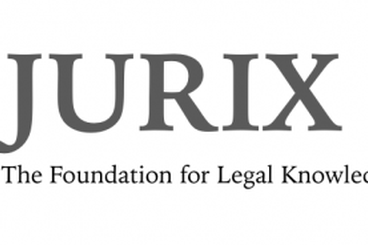AI4Legs 2024 - third edition: AI for Legislation

Date:
Event location: Faculty of Law, Masaryk University Veveri 70 61180, Brno, Czechia - In presence and online event

Artificial intelligence (AI) is increasingly influencing various sectors, including governments, public administrations, institutions and parliaments. The emerging use of LLM and generative AI stimulate different scenarios of applications in Parliaments, even if in an experimental manner. However, despite its potential, AI's use in parliaments remains under-analyzed by the research community. AI’s integration into parliaments must align with legal theory and constitutional frameworks to preserve democratic values.
Parliaments are starting to explore AI through proofs-of-concept in three main key areas:
Parliaments with strong digital transformation strategies are better positioned to implement AI effectively, requiring digitized document systems and advanced legal standards like LegalXML, semantic web, NLP tools.
This workshop would like to discuss these challenging questions with interdisciplinary instruments coming from the philosophy of law, Constitutional law, legal informatics including AI&Law, computational linguistics, computer science, HCI and Legal design. We intend also to provide the state of the art of the most advanced applications of AI in support of better regulation, law-making system, aims to find answers to these questions using.
Organizer: Monica Palmirani (Research Institute for Human-Centered Artificial Intelligence, ALMA-AI, University of Bologna)
This workshop is organized inside of the ERC HyperModeLex funded by the European Commission Grant ID 101055185.
• Fundamental legal concepts and principles concerning the eLegislation
• Theory of law and ICT in the legislative process
• Legal XML and XML Rules for the legislative process
• Generative AI in the legislative process
• AI/ML for Legislative Process
• Government Linked Open Data (GLOD)
• Legal ontologies and legal knowledge graphs for better regulation
• Smart Data and the Semantic Web in legislative domain
• Governance and deliberative models of democracy using AI
• Blockchain distributed ledger technology for law-making process
• Visualization of legal knowledge for transparency in legislative domain
• NLP tools for capturing legal knowledge in legislative domain
• Legal language and NLP representation
• Legal design and visualization of the legislative knowledge
• Modelling the rule of law in the law-making process
• Interpretation modelling of legislation
• Data analytics for legislation
• Large Language models
• Neuro-symbolic, Knowledge Graph, RAG
tbd
Draft paper Springer LNAI format 10 pages: Nov. 17th 2024 AoE
Workshop presentation: tbd
Notification of acceptance: Nov. 30th 2024
Camera ready (Springer LNAI): December 11th 2024
Publication (selected papers) LNAI: AICOL volume, Springer 2026
Papers should be in English and must be submitted at AI4Legs Easychair site: https://easychair.org/conferences/?conf=ai4legsiii.
Papers will be peer-reviewed by at least by 3 PC members before being accepted for presentation at the Workshop.
A second peer review-round will be carried out before submission to the next AICOL volume at LNAI.
Paulo H. C. Alves, Pontifical Catholic University of Rio de Janeiro
María Luisa Alvite Díez, Universidad de León
Pompeu Casanovas, UAB
Giuseppe Contissa, University of Bologna
Jaime Delgado, Universitat Politècnica de Catalunya
Nicoletta Fornara, Università della Svizzera italiana, Switzerland
Guido Governatori, Independent researcher
Mustafa Hashmi, Data 61 , CSIRO
Silvia Llorente, Universitat Politècnica de Catalunya
Marco Manna, Department of Mathematics and Computer Science, University of Calabria
Mercedes Martinez-Gonzalez, University of Valladolid
Grzegorz J. Nalepa, Jagiellonian University
Jose Palma, University of Murcia
Marta Poblet, RMIT University
Radim Polčák, Masaryk University
Shashishekar Ramakrishna, EY - AI Labs / Free University of Berlin
Livio Robaldo, Legal Innovation Lab Wales, University of Swansea
Salvatore Sapienza, University of Bologna
Giovanni Sartor, EUI/CIRSFID
Jaromir Savelka, Carnegie Mellon University
Gijs van Dijck, Maastricht University
John Zeleznikow, La Trobe University